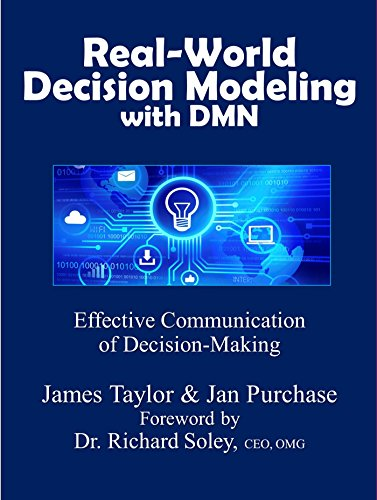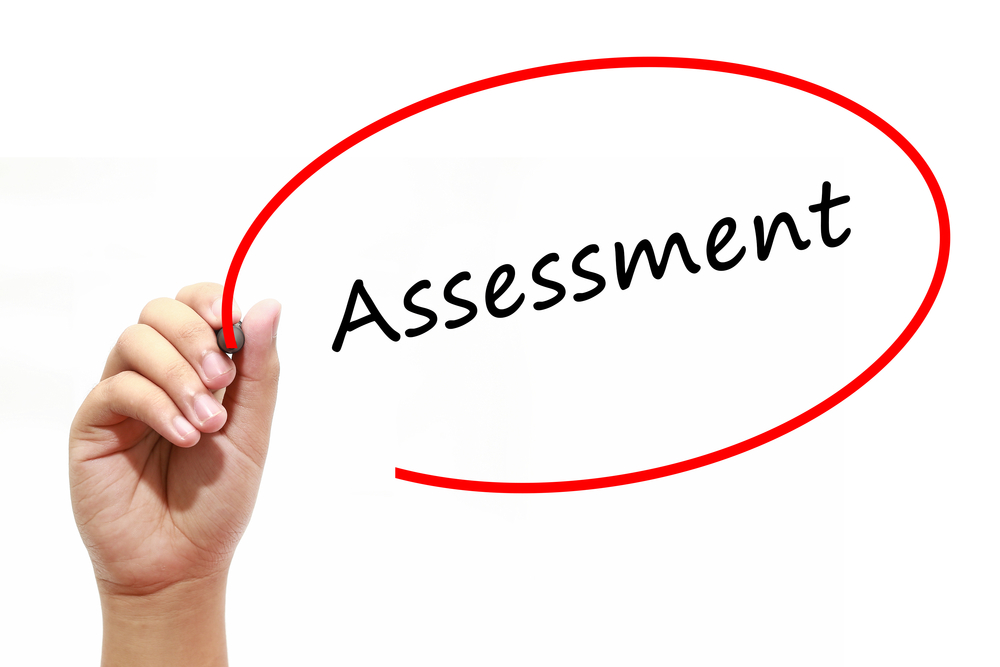Home / Resources
Resources
Discover a Wealth of BPM Knowledge and Expertise at BPMInstitute.org!

The BPM Cathedral vs. Bazaar Model
When looking at BPM there appears to be two distinct worlds Pegasystems Inc. and one that is more standards-driven that includes vendors, such as, IBM, Appian, etc. BPM using Pegasystems’ PRPC versus BPM proscribed by this latter set of vendors represent two very different philosophies on how to implement BPM systems. However, I would say that the one thing that all vendors appear to agree with is that an enterprise-grade BPMS is a truly disruptive technology, since its tactical mission is usually to:
- Extend the functionality of existing apps,
- Enable disintermediation between applications,
- Tightly-integrate processing gaps among disparate applications
- Provide opportunistic business application behavior that takes advantage of new technologies and techniques in order to deliver superior functionality

Creating a Great Business Architecture Team
Business architecture team structure, composition and advancement is top of mind as organizations establish their own internal business architecture practices. In a previous article , we explored the structure of an effective business architecture team, with a focus on where business architects are positioned, how they are organized, and how they collaborate. In this article, we will explore some of the most frequently asked questions related to team composition, including who to hire, how to find and create great business architects, and how many to hire.
Who Do We Hire?

Blockchain for Organizational Culture: Part II
[In 2017], I attended the Blockchain World Conference and found the main focal points of the event to be quite interesting: The case studies and transformational messages were pervasive. Decentralization and its impact on organizations, as well as business...

Meet the Authors: James Taylor and Jan Purchase, Real-World Decision Modeling with DMN
Organizations make thousands of automated, operational decisions every week – from targeted pricing of products to determining which customers get automatic approval, from customizing website navigation and content to satisfying regulatory mandates. How well they make these decisions drives their profitability, makes or breaks their reputation and powers customer satisfaction.
All too often these decisions are not explicitly managed, assessed or even visible to the company’s business experts. Instead they are buried in the company’s software code and policy manuals, where they are hidden from view and may even be contradictory.
Decision modeling gives you the power to change this, to make your organization’s decisions transparent, agile and scalable.
In this webcast, authors James Taylor and Jan Purchase share highlights from their new book, Real-World Decision Modeling with DMN, and discuss the value of Decision Management and Modeling.

Measuring Business Architecture Capability Maturity
Whether aware of it or not, an organization functions because it is made up of parts that are designed to work together in unison to accomplish the overall mission of the organization. These parts (employees, departments, project teams, competencies, processes, products and so on), taken together, form the business architecture of the complex social system which is the organization. The Business Architecture capability, on the other hand, reflects the organization’s intentional efforts to establish a formalized competency supported by dedicated people, processes, procedures, and technology, which expressly serves the purpose of aligning the strategic and operational goals and processes in the organization. It is safe to say, therefore, that every organization has a business architecture, but not necessarily a Business Architecture capability.

An All-Services Approach to Modeling Business
“Man is the model-making organism par excellence … Myths, philosophical systems, and science represent different types of models of what social scientists call cognitive systems. The purpose of the model is to enable the user to do a better job in handling the enormous complexity of life. By using models, we see and test how things work and can even predict how things will go in the future. The effectiveness of a model can be judged by how well it works, as well as how consistent it is as a mechanical or philosophical system.” Edward T. Hall – Beyond Culture
Introduction
The ability to explore business issues through models lies at the heart of the business architecture discipline. Business architecture models capture the essence of the business, how the parts relate to one another, and how the business interacts with external entities and forces.

A BPM Team or BPM Stakeholders?
There are many ways to ‘do’ business process improvement projects. It’s best if the company has a methodology from BPM, Lean, Six Sigma, Reengineering or some other methodology. Here’s the one I use, starting with selecting the project and ending with monitoring and sustaining the project; ‘doing’ the process improvement project means completing the section in the middle from Chartering and Staffing to Implementation Plan.

Companies use a number of methods to conduct the BPM project from using a Six Sigma Black Belt as an expert, to having a Business Analyst do interviews with subject matter experts and developing the as is model and to be map, to using different half day workshops for different phases of the process with the appropriate stakeholders. The one I highly recommend and have used with over 100 different processes is a team-based method.

DMN Adoption – Barriers and How to Break Through
Industry guru Bruce Silver recently posted essays discussing the parallels between the Business Process Model and Notation (BPMN) and the more recent Decision Model and Notation (DMN). Both standards, as he notes, were created with the goal of business user acceptance. In his view BPMN has been a success because it provided a clear, business-friendly way for users to communicate, and (with BPMN 2.0) established a means to tie the modeling and execution language. It was truly “What You Model is What You Execute.”

Turn Your Waterfall Experience into Successful Agile Delivery
Anyone who has worked on waterfall projects knows the challenges: The lack of communication between the business users and the developers; the predetermined (and immovable) requirements; the quality issues that are not evident until you are too close to the release date to safely address them; and the frustration of having to wait months (and sometimes years) before your efforts result in a live working solution.
When you make the move from waterfall to Agile projects, you have two choices: You can choose to either block out your waterfall experience altogether (like any traumatic event!) or you can choose to leverage your experience to make yourself an even more effective Agile team member. Here are three ways that you can use your waterfall experience to your advantage:

Aren’t all businesses “digital”?
Aren’t all businesses “digital”?
If they aren’t now, the winners certainly will be.
“Virtually every firm in every industry is being shaken up by the digital revolution. No chief executive can ignore the onslaught of mobile computing, big data, artificial intelligence and the like. And while companies were once content to wait and see what impact the Internet might have on their business, there is now a broad consensus that processes and practices must be radically transformed to capitalize fully on digital technology.” Zanny Minton-Beddoes, editor of The Economist World in 2015 Report
“72% agreed with the statement ‘These days I consider my company to be a technology company’” and “97% say that their companies will change more in the next 5 years than the past 5 years.” Research by Fortune 500 CEOs, June 2016

Perspectives of the Development of BPM
Process management is at present one of the most often implemented methods of management within organizations (Armistead, Pritchard & Machin, 1999), though it is not a new concept in and of itself. Its foundations have been set as far back as 60 years (Deming) or even perhaps 100 years ago in Taylor’s work (F.W. Taylor) (Deming, 1986). Traditional process management assumes that processes cannot be altered by process performers in the course of their performance (Gartner IT Glossary, 2016). Within the traditional model, the performance of processes is tied to the decisions of the management of a given organization, which are reflected in standard process models (often in the form of rules and regulations or procedures). But as numerous research demonstrates (Kemsley, 2009a; Pucher, 2010; Ukelson, 2010; HandySoft, 2012), traditional BPM is useful in 20% or perhaps 30% of processes of the organization.

Real-World Decision Modeling with DMN
Organizations make thousands of automated, operational decisions every week–from targeted pricing of products to determining which customers get automatic approval, from customizing website navigation and content to satisfying regulatory mandates. How well they make these decisions drives their profitability, makes or breaks their reputation and powers customer satisfaction. How these decisions are made is one of a company’s most important assets. All too often these decisions are not explicitly managed, assessed or even visible to the company’s business experts. Instead they are buried in the company’s software code and policy manuals, where they are hidden from view and may even be contradictory. Decision modeling gives you the power to change this, to make your organization’s decisions transparent, agile and scalable.

Blockchain for Organizational Culture: Part I
Editors Note: DBizInstitute is excited to share this article, written by Dr. Setrag Khoshafian, with our community and in advance of his new book release. Keep an eye on our website as we share additional articles in the coming months written by Setrag, as well as a pending Meet the Author webcast to discuss his new book ‘How to Alleviate Digital Transformation Debt’ expected to air Fall 2021. This article was originally published on CognitiveWorld.com in 2017.

What to Look for in 2017?
According to a recent article in Forbes, there’s a high level of consistency on macro technology trend predictions for 2017 by organizations such as Gartner, Forrester, Deloitte, Accenture, and McKinsey. That’s not surprising as “digital transformation” is pretty much the leading buzzword in today’s corporate lexicon and executives scramble to get up to speed on related concepts such as social, mobile, cloud, artificial intelligence, machine learning, cognitive computing, analytics, and big data.

The Five Essentials of Operational Excellence
Before an organization can embark on the journey to Organizational Excellence there are some conditions that need to exist beforehand. The five essentials are pre-existing conditions provide the foundation upon which the tools of Organizational Excellence are built.
The five essentials of Operational Excellence assumes that the organizational leadership and each functional area has a vision and a structure to direct its efforts, operates to principles, needs people to deliver value and tools to help develop basic capabilities and processes.
The five essentials of Operational Excellence are:
- Vision
- Structure
- People
- Principles
- Tools
Each is an essential and critical element, creating a whole that is greater than the sum of the parts.
1. Vision

BPM Readiness Assessment
Is your company ready to apply the BPM discipline? A BPM Readiness Assessment offers a company an objective and efficient means to assess its ability to change and adapt to a process performance orientation. Understanding a company’s “process maturity profile” enables it to design a BPM adoption program that addresses six critical success factors that accelerate the adoption of BPM and specifies a program for realizing its sustainable value:
- Linkage of process performance to business strategy
- Employee understanding of process (skills and roles)
- Utilizing BPM technology• Practicing process improvement methods
- Process-related attitudes and behaviors
- Implementing Process Governance (decision-making and oversight)
VALUE OF ASSESSMENT

Designing Federal Programs with the American People in Mind
“To more fully realize the benefits of behavioral insights and deliver better results at a lower cost for the American people, the Federal Government should design its policies and programs to reflect our best understanding of how people engage with, participate in, use, and respond to those policies and programs.” – President Obama

High Performance through Digitalization – The BPM-Discipline as Value-Switch
The Digital World – a Powerful new Business Environment

The Business Architect’s Service Portfolio
For some time now I have been promoting the idea that the practice of business architecture is not about creating blueprints and models but applying a set of tools and techniques to form broader perspectives, create deeper insight, and solve business problems. If business architecture is a practice, then what is its portfolio of services and how do you create them?
Start with three best practices
There are three basic best practices for service development that lead to a powerful service portfolio.

10 Steps to Becoming an Agile Business Analyst (Part 2)
10 proven approaches for transitioning from a traditional business analyst role to an Agile business analyst role (Part 2 of 2) The first 5 steps to becoming an Agile Business analyst were outlined in part 1 of this article. Now, part 2 of this article provides you with five more tips for becoming a successful Agile Business Analyst.
Step 6: Be an Expert Communicator
Everything about the Agile business analyst role depends upon effective communication with business users, development team members, management, and executives to understand their needs and to act as a liaison across all parties. You should be equally comfortable speaking with stakeholders at both a big picture level and at a very detailed level, depending on what the situation requires.













